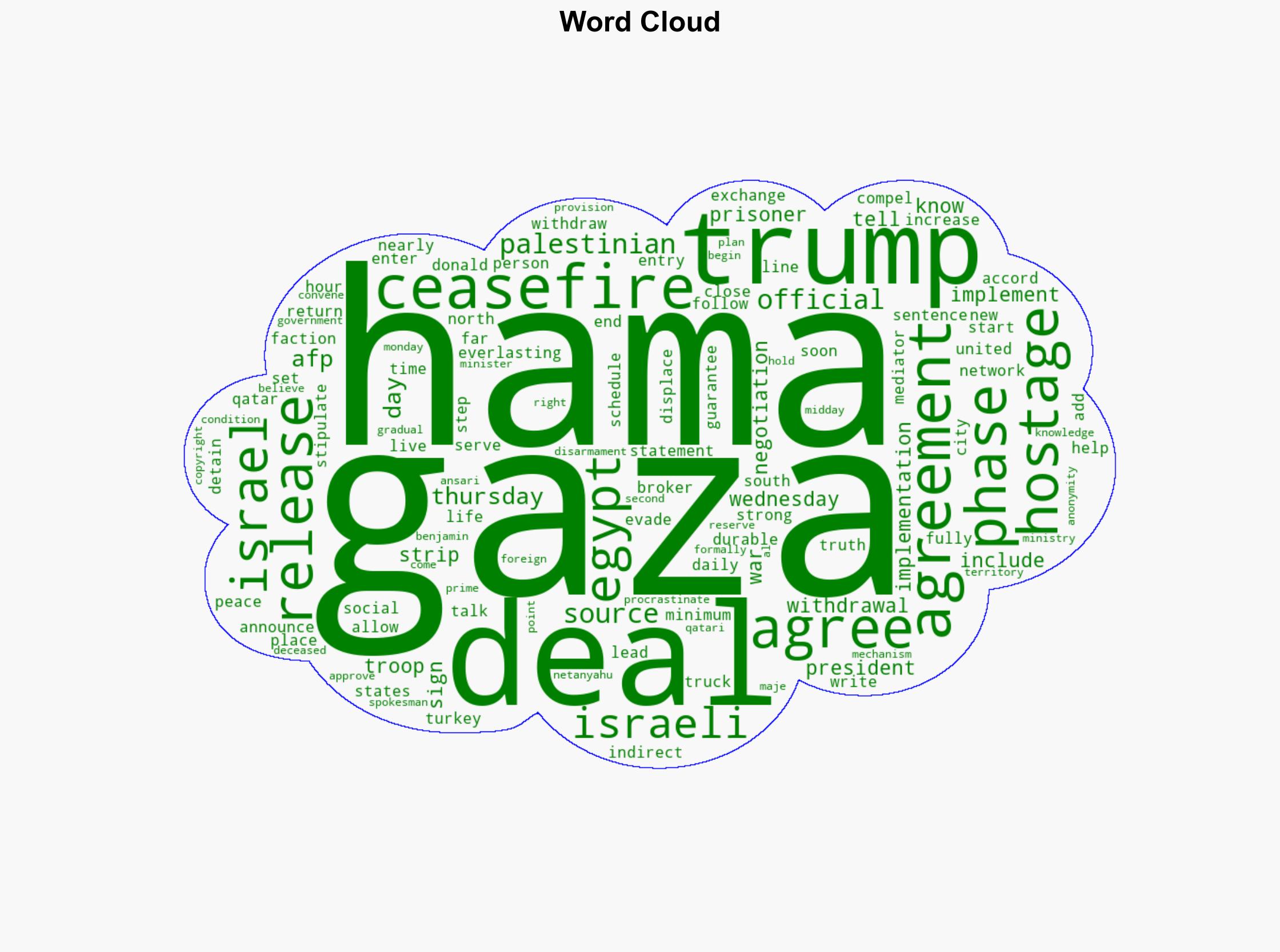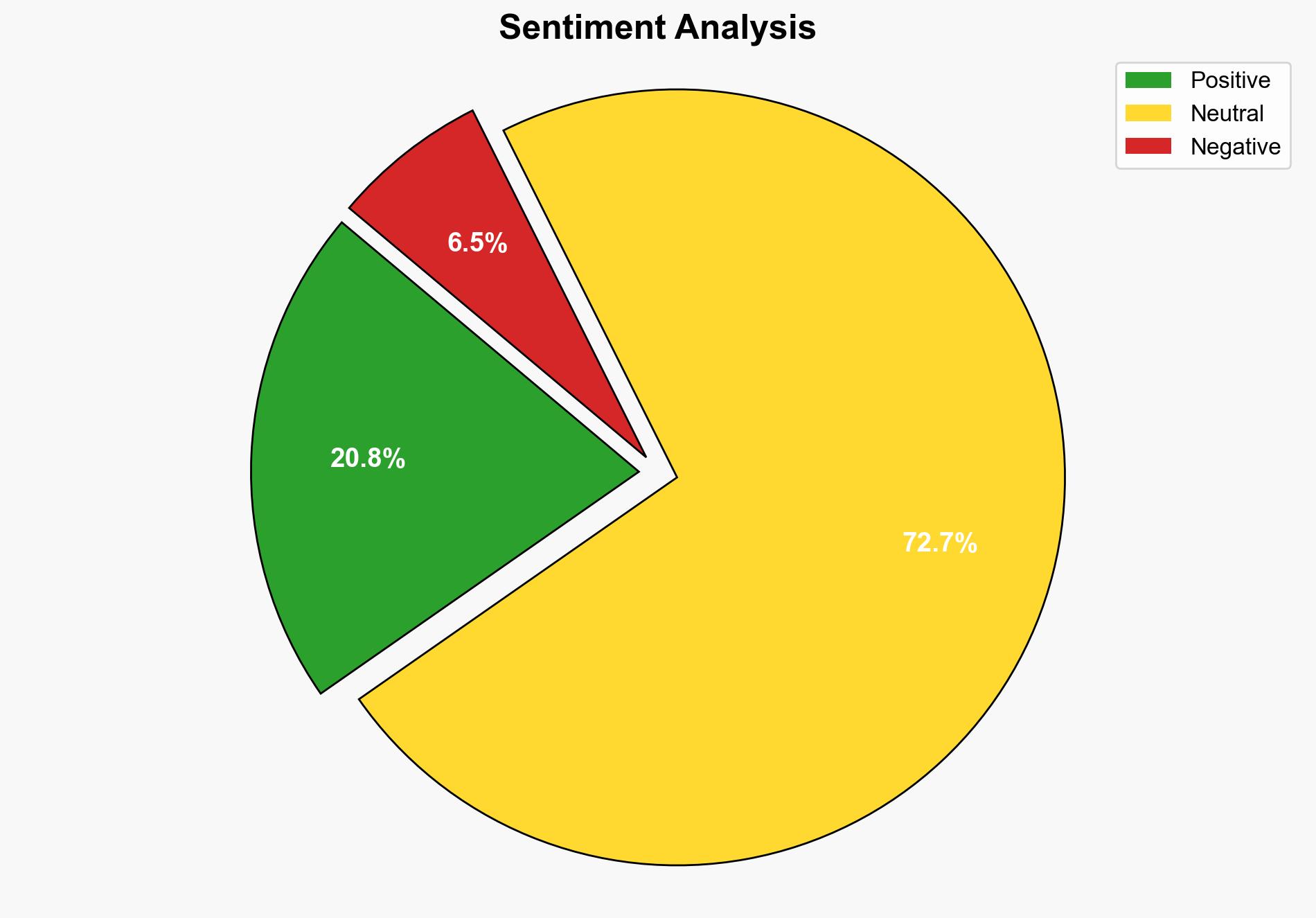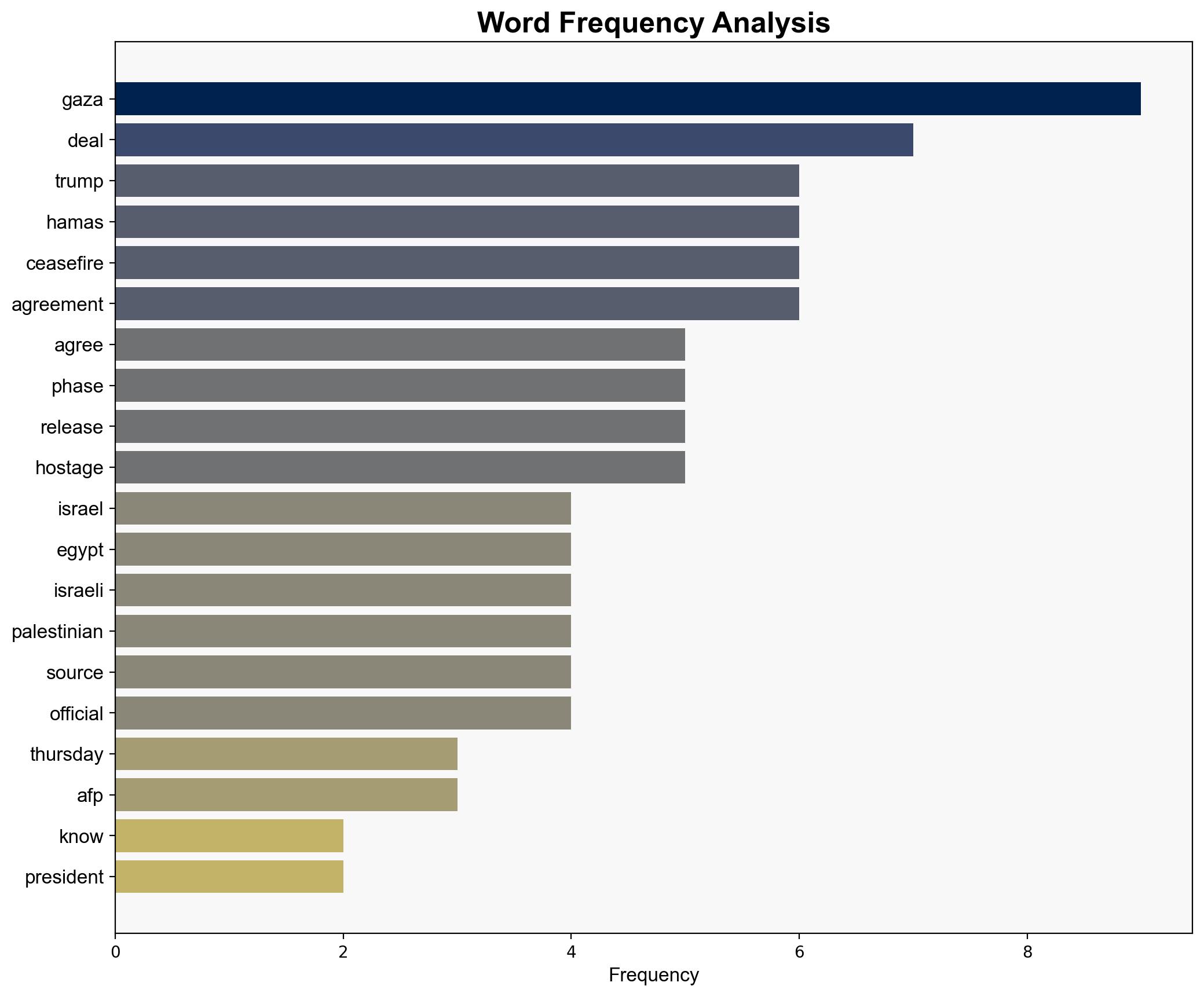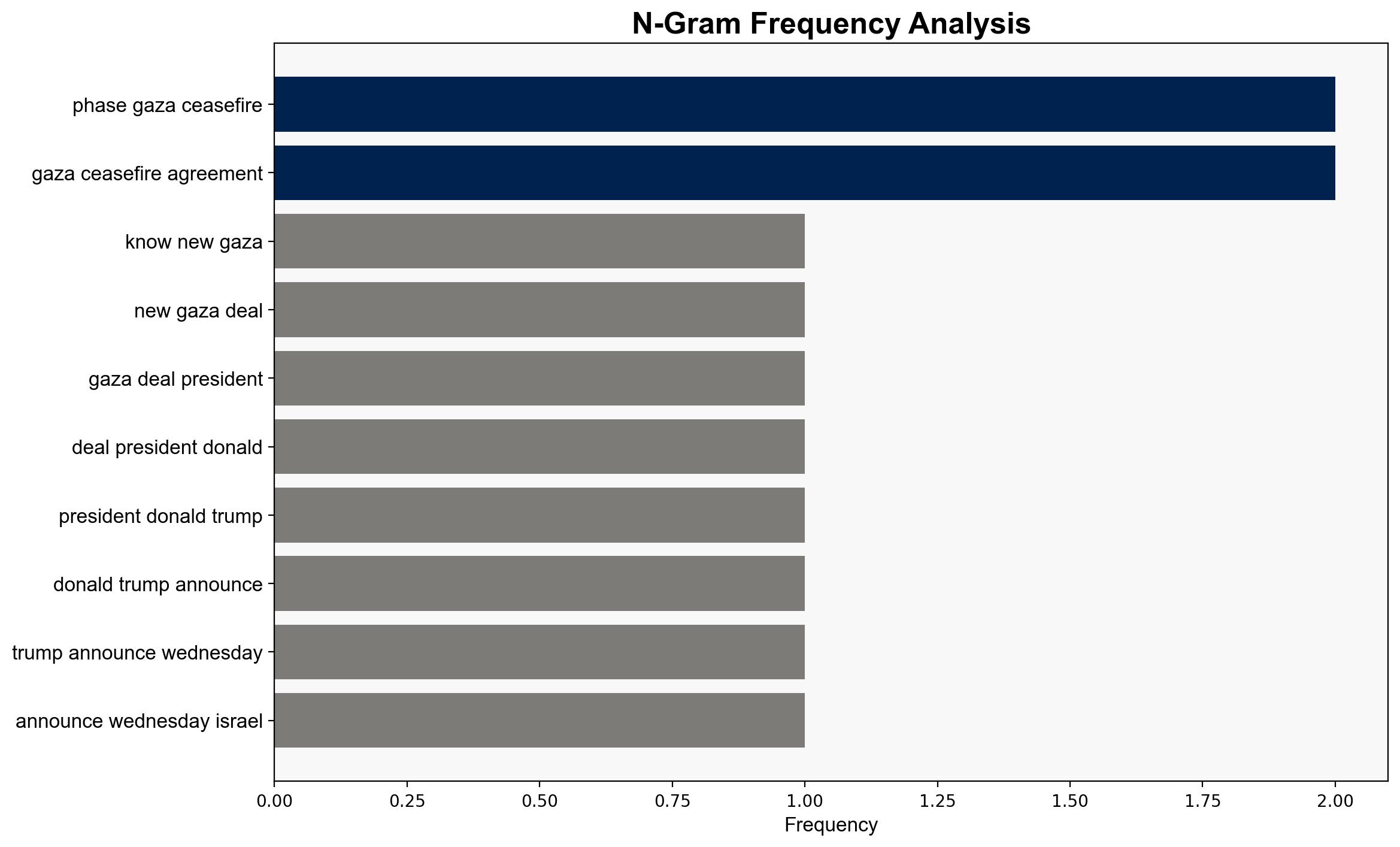What we know about the new Gaza deal – The Times of India
Published on: 2025-10-09
Intelligence Report: What we know about the new Gaza deal – The Times of India
1. BLUF (Bottom Line Up Front)
The most supported hypothesis is that the new Gaza deal represents a genuine attempt at a phased ceasefire with the potential for long-term peace, albeit with significant implementation challenges. Confidence level is moderate due to the complexity of involved parties and historical precedents of failed agreements. Recommended action is to closely monitor the implementation phases and engage in diplomatic support to ensure compliance from all parties.
2. Competing Hypotheses
Hypothesis 1: The Gaza deal is a sincere effort by all parties to achieve a lasting ceasefire and peace. This is supported by the involvement of multiple mediators (Egypt, Qatar, Turkey) and the structured phases of the agreement, including the release of hostages and prisoners, and the withdrawal of Israeli troops.
Hypothesis 2: The deal is a strategic maneuver by one or more parties to gain temporary political or military advantage, with no real intention of long-term peace. This hypothesis is supported by historical patterns of ceasefire agreements that have collapsed due to non-compliance and strategic deception.
3. Key Assumptions and Red Flags
Assumptions include the belief that all parties are negotiating in good faith and that external mediators can enforce compliance. Red flags include the lack of detail on enforcement mechanisms and the potential for misinterpretation or manipulation of the agreement’s terms. The anonymity of sources and the absence of direct statements from key leaders also suggest potential deception.
4. Implications and Strategic Risks
The deal’s success could stabilize the region, reducing the risk of escalation and improving economic conditions. However, failure could lead to renewed hostilities, increased displacement, and broader regional instability. The involvement of multiple countries introduces geopolitical risks, including potential shifts in alliances and influence.
5. Recommendations and Outlook
- Engage in diplomatic dialogue with all parties to reinforce commitment to the agreement.
- Establish an international monitoring body to oversee implementation and address violations.
- Scenario-based projections:
- Best Case: Successful implementation leads to lasting peace and regional stability.
- Worst Case: Breakdown of the deal results in renewed conflict and regional destabilization.
- Most Likely: Partial compliance with intermittent violations, requiring ongoing diplomatic intervention.
6. Key Individuals and Entities
Donald Trump, Benjamin Netanyahu, Maje Al Ansari
7. Thematic Tags
national security threats, regional focus, conflict resolution, diplomatic engagement





